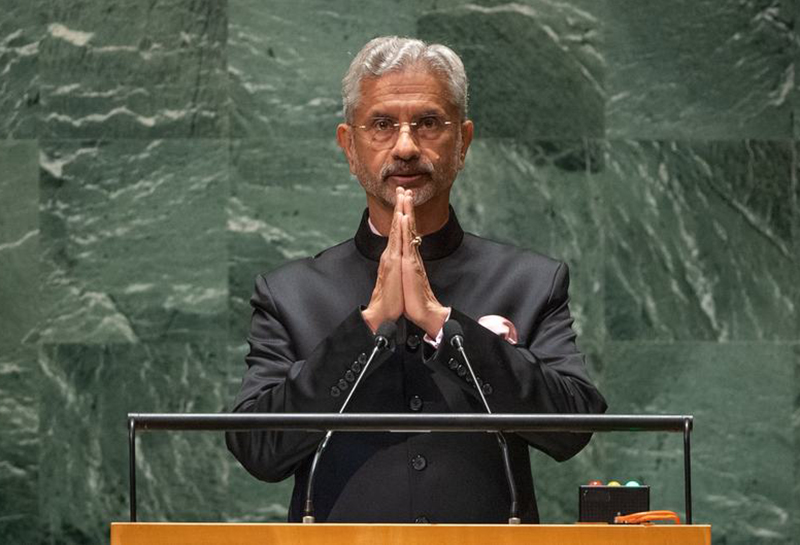Amid the Indo-Canadian diplomatic row and continued tension with China, India on Tuesday said "political convenience" cannot be the basis for a response to terrorism or extremism, and called on the global community to respect the rules-based order and the UN Charter.
Addressing the UN General Assembly, External Affairs Minister S Jaishankar called on nations to not interfere in the internal affairs of others.
Jaishankar's remarks have been interpreted as a jab at both Canada and China.
"… nor must we countenance that political convenience determines responses to terrorism, extremism and violence. Similarly, respect for territorial integrity and non-interference in internal affairs cannot be exercises in cherry-picking. When reality departs from the rhetoric, we must have the courage to call it out… without genuine solidarity, there can never be real trust," he said.
India-Canada diplomatic row:
India and Canada have been engaged in a diplomatic row since Canadian Prime Minister Justin Trudeau last week claimed "agents of Delhi" were involved in the killing of Khalistani terrorist Hardeep Singh Nijjar.
Nijjar, wanted by India on terrorism charges, was a Canadian citizen who was shot dead outside a gurdwara in Canada's British Columbia in June.
India has denied Canada's allegations, calling them 'absurd', and pointed out Trudeau's government has yet to share evidence to back its claim.
India has pointed out that Canada has ignored Khalistani terror threats growing from its territories, and repeatedly failed to act on "specific evidence about criminal activities" by Canada-based individuals.
India-China border row:
Jaishankar's words have also been seen as a dig at China as India continues to demand Beijing returns to pre-April 2020 positions (before the Galwan Valley clashes) along the Line of Actual Control.
Since the clashes, Indian and Chinese troops have been locked in a stand-off for over three years in certain friction points in eastern Ladakh, even as they complete disengagement from other areas.



